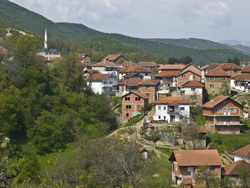Renewing local economies with renewable energy
Conditions for the uptake of RES in the Western Balkans have not been ideal with many of its nations having faced internal conflict in recent years. Yet the need for RES is stronger than ever as several remote areas in the region, including islands, don't have access to national electricity grids. A collaboration between industry and science was initiated that included participants from the Western Balkans and several EU Member States. The project was titled 'Renewable for isolated systems – energy supply and waste water treatment' (RISE) and received funding from the EU. The aim of RISE was simple – to investigate how RES could be exploited to bring a sustainable supply of energy to the inhabitants of these remote areas without breaking the bank. Rather than rely on estimates found in the literature, actual data regarding sunshine, wind and types and amounts of biomass were collected on the ground. Detailed maps of solar, wind and biomass potential were then constructed. These maps were also enriched with other important information such as potential greenhouse gas (GHG) emission reductions, distance to the national electricity grid, etc. One of the RISE case studies revealed cost as a barrier to infiltration of solar panel technology. Since investment is an important part of the RES puzzle, a decision support tool called RISE-DSS was created to provide insight into the financial performance of the various RES technologies depending on the region. Additional software also helps match potential energy supply from RES with demand while taking features such as energy storage needs into account. In addition, a novel wastewater treatment concept was developed during RISE that addresses both water management needs and energy production. The anaerobic-aerobic granular system (AAGS) can purify municipal as well as industrial wastewater while producing biogas that can be fed to a combined heat and power plant (CHPP) to produce both electricity and heat. Further to application of RISE-DSS during the case studies, recommendations have been made regarding the appropriate level of feed-in tariffs and other types of financial incentives to promote RES adoption. A campaign to raise awareness about RES also highlighted the potential for stimulating local economies and creating jobs.

